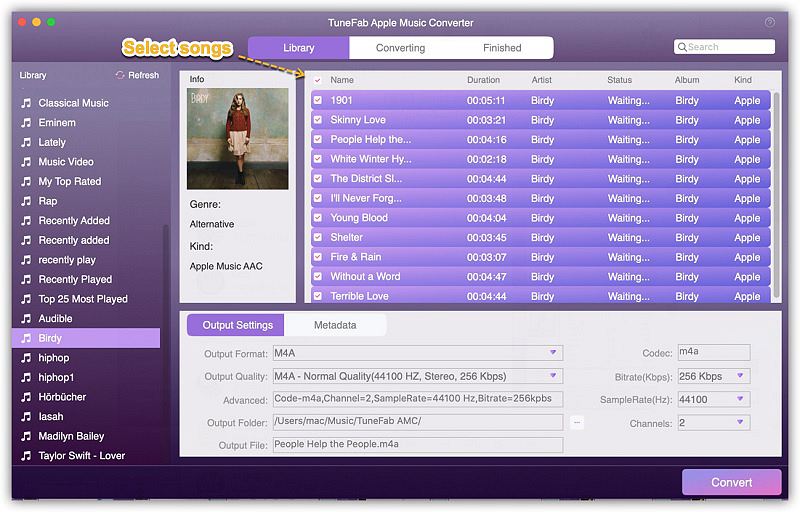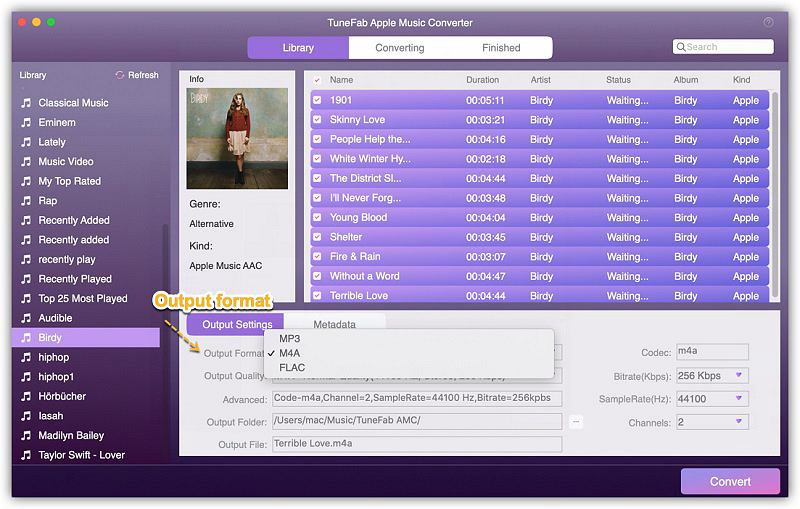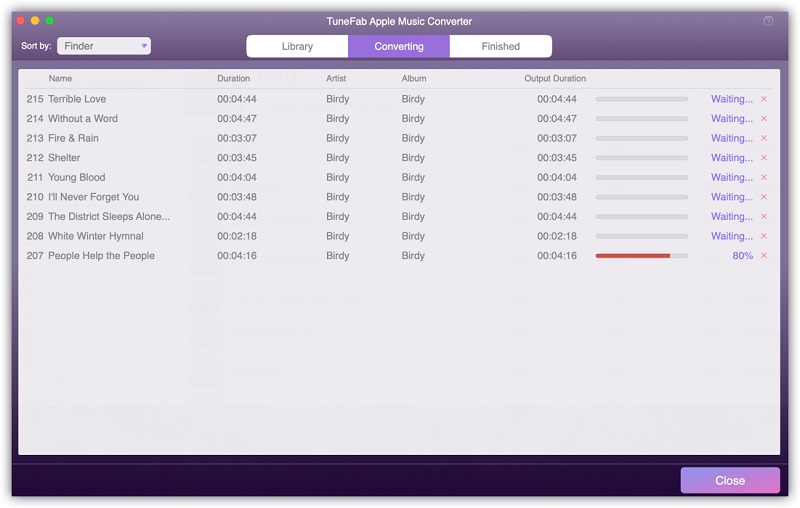Apple Lossless (also known as Apple Lossless Encoder, ALE, or Apple Lossless Audio Codec, ALAC) is an audio codec developed by Apple Inc. While AAC(Advanced Audio Coding) is a standardized, lossy compression and encoding scheme for digital audio. Both Apple Lossless and AAC use .m4a as file extension name.
Compared to Apple Lossless, AAC is more useful for most people to listen to iTunes songs. So, in this article, we are going to compare the differences between Apple Lossless and AAC and show you how to convert Apple Lossless to AAC(.m4a).
You May Like:
Part 1. Apple Lossless vs AAC - What's the Difference?
1. AAC produces much smaller files compared to Apple Lossless.
Files that are encoded with AAC are substantially smaller than files encoded with Apple Lossless. The difference in size can be up to 10 times. You need more storage space if you're using Apple Lossless. You'd better to stick with AAC when you are using mobile devices.
2. Apple Lossless requires beefier hardware compared to AAC.
Aside from space considerations, you would also need better hardware in order to cope with the higher amount of data of Apple Lossless that needs to be processed. In addition, unlike AAC, there is less support for Apple Lossless which is only supported by Apple devices. If you intend on using standard hardware such as your smartphone and basic earphones, then you might not hear any difference between AAC and ALAC.
3. AAC requires licensing fees, while Apple Lossless is a free codec.
No fees are charged to the hardware or software makers when it comes to Apple Lossless. On the other hand, AAC is not free, and the fees can vary depending on the number of units produced. In certain special cases, a flat fee is charged.
Related Reading: Apple Lossless vs FLAC: What's the Difference?
Part 2. Easiest Way to Convert Apple Lossless to AAC(.m4a)
After comparison, we clearly know that AAC(.m4a) is more suitable for most of us. Now that AAC (.m4a) can save storage space and it is supported by more portable devices than Apple Lossless. Why not try converting Apple Lossless to AAC(.m4a)? If you're interested, you can try a professional Apple Lossless to M4A converter - TuneFab Apple Music Converter. It works well in removing DRM from iTunes music and converting to MP3/M4A/WAV formats with original quality preserved. It is easy-to-use and need no complex operation.
Step 1. Launch TuneFab Apple Music Converter
Download and install the converter on your computer and then launch it. Here needs you to update iTunes to the latest version because the converter works with iTunes.
Step 2. Add Apple Lossless Files
In the "Playlists" section, you can find your Apple Lossless easily. Then tick the blank box beside the songs for selecting to convert.

Step 3. Select M4A as Output Format
Go to the "Output Setting" section and choose M4A as output format from the drop-down list. (Notice: This .m4a files is with AAC codec inside.)

Step 4. Customize Converted Songs
You are able to adjust the parameters including codec, bit rate, sample rate, channel, etc. Also, you can choose output folder as you want.
Step 5. Convert Apple Lossless to AAC (.m4a)
Click "Convert" to start converting. All you need next is sitting and waiting the conversion completed.

With TuneFab Apple Music Converter, you can release more space when you sync iTunes songs to your mobile devices and listen to the songs more flexibly. Even more, if you are in need, you can use the powerful converter to convert Apple Music to lossless format like FLAC or AIFF. All in all, the limitation of Apple Lossless is not unbreakable if you have a good solution as TuneFab Apple Music Converter provides.














